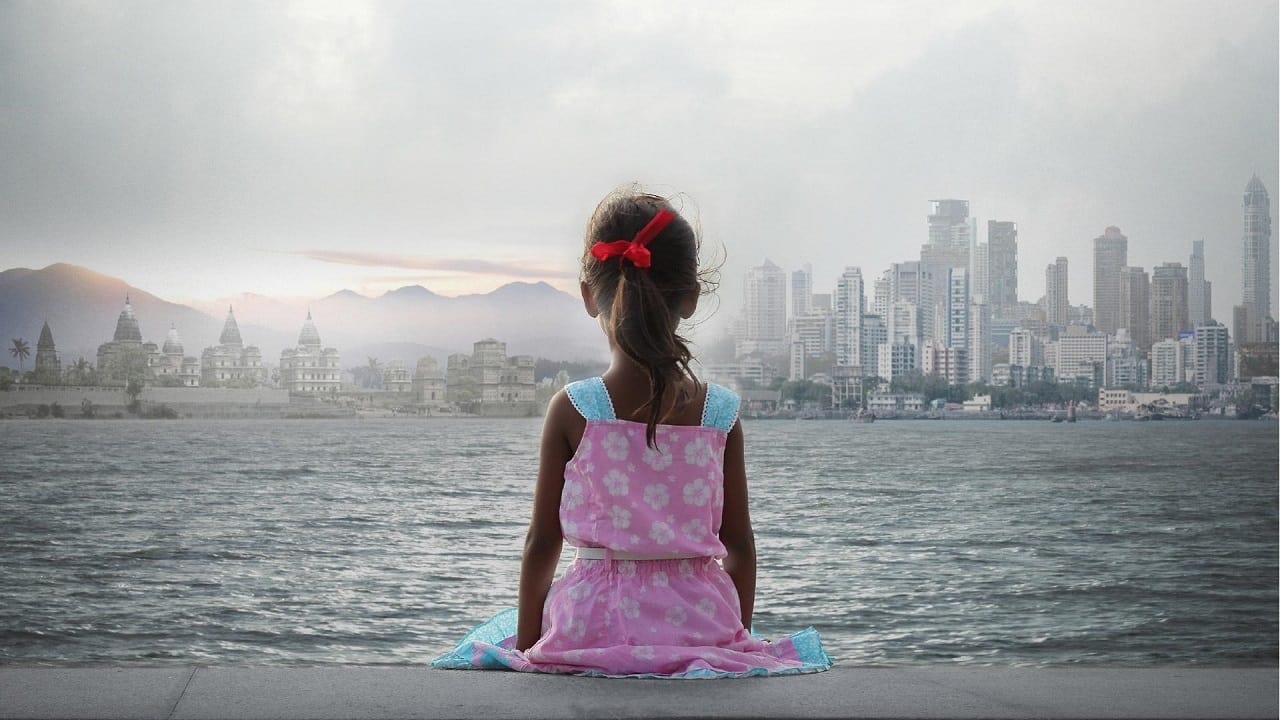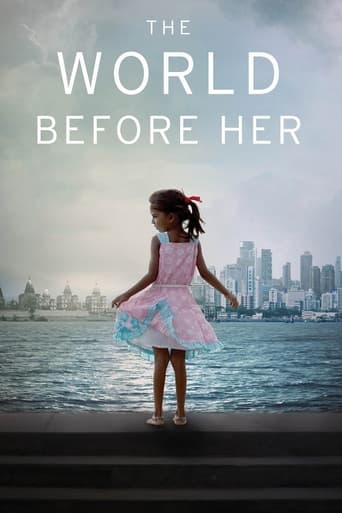TeenzTen
An action-packed slog
Abbigail Bush
what a terribly boring film. I'm sorry but this is absolutely not deserving of best picture and will be forgotten quickly. Entertaining and engaging cinema? No. Nothing performances with flat faces and mistaking silence for subtlety.
Kodie Bird
True to its essence, the characters remain on the same line and manage to entertain the viewer, each highlighting their own distinctive qualities or touches.
Sabah Hensley
This is a dark and sometimes deeply uncomfortable drama
Prabhat_KS_1729
To begin with, I very much appreciate the fact that this film deliberated upon sensitive topic of female-foeticide. I applaud Pooja Chopra's mother for frankly sharing her experience about this abomination.Secondly, the movie touched upon the topic of corporal punishment meted out to children by Indian parents. Description of corporal punishment meted out to Prachi was unnerving. Its ironic that children (here Prachi) actually justify it in spite of concrete evidence of psychological impacts in later life.Lastly, I laud the effort of the film-makers to boldly document the events occurring in niches of Indian society. The general effort was aimed at reforming Indian society from within. This is highly laudable.I have certain reservations with the content matter of the documentary too.1. I'm a bit surprised by the choice of subjects for the documentation. What exactly the documentary wanted to conclude? At one end the documentary portrays structural and functional constraints at work in Indian society which inhibits women to pursue certain lines of occupation. At another end it insinuates the indoctrination of a bunch of Indian girls by an extreme-right and nationalist organisation. In between it throws punches on religious extremism and religio- political violence.2. What share of Indian women actually aspire to become Miss India or to join Durga Vahini ? I belong to the Hindi heartland of India and I came to know of Durga Vahini only after watching this documentary! Millions of young Indian women aspire to join Civil Services, police, PSUs and Armed Forces every year. On Republic Day 2015 India also showcased all-female military contingents in the parade. I'm surprised at the choice of nano-scaled niche groups which this documentary tries to portray. According to Wikipedia, the strength of Durga Vahini was 8000 in 2002. I'm pretty sure, even today that figure would not have crossed 50,000. Amongst 50 crore Indian women does these niche groups matter?3. This documentary, like most others, has been made by a film-maker averse to nationalist and conservative world view. This fact is explicit by the facts provided and questions asked in the narrative. This stance can't be called 'liberal' because a liberal world view will respect the choices of a person and wouldn't vie for favourable responses. For example, in a question (towards the end of the film) the interviewer asks about Prachi Trivedi's reaction to 'westernization'- whatever that means. I personally know only of 'globalization' as an influence. As a model herself remarks during the film, will practice of Yoga in US be called 'Indianisation'. The words - Globalization and Westernizaion- are sure to elicit differing responses from a nationalist, which Trivedi is.4. I want to comment on some conclusions presented in the documentary.i) The documentary tells that "Over the past 20 years, Hindu nationalism has become a pervasive cultural and political force in India". I won't comment on political aspect here, but I can safely say that nationalism itself is not a major cultural force in India. A variant of patriotism is at display on national festivals but it doesn't necessarily translates into nationalism.ii) The documentary asserts that "Hindu extremists are also called the 'Indian Taliban'". This was a statement made for political ends by leaders of a particular grouping. Who else calls whom so? You've trivialised the factual content by such loose statements. Taliban is a reactionary political grouping in Afganistan and Pakistan. It was midwifed by Americans during Soviet invasion. There are orthodox and reactionary political groupings in all thriving democracies. That's why they are 'democracies'.iii) The documentary gives the following conclusions: a) "Hindu extremists have committed countless atrocities across India". b) "Many believe Hindu extremists pose a greater threat to national security than Muslim ones". As I understood the documentary was about the structural and functional constraints for women in society and feminist perspectives. Such statements make the documentary wade into political waters which polarises the opinion.5. As the documentary was recommended by a very close friend, I made detailed observations. Doing so, I found some factual errors in the documentary.> Translation for "Desh" as "Nation" instead of "Country" in the subtitles provided by the film-maker. There's a lot of difference between the two especially when you are wading in political waters. (@ 9:36 min in DVD)> "Main wahan pe top pe jaungi" has been omitted altogether in the subtitles (@ 18:28 min). This omission changes a viewer's perception of the young girl getting trained at Durga Vahini's camp. Poor editing folks.> "Parishad" refers to 'Vishwa Hindu Parishad' which is an 'organisation'. It is translated as "movement" instead. (@ 30:30 min in DVD). There is a major difference between the two.> Insinuated "Hinsa" as "murder" (@ 54:51 min). Its 'violence' not 'murder'.> Added "Culture" in the subtitles (@ 56:28 min.) It is not said by the speaker in the video. Come on folks, these are words which carry weight especially when you are making a documentary on sensitive topics.In the end, "The World Before Her" is just another documentary made with preconceived notions about certain cultural moorings. It does touch some burning issues but falls flat when it comes to objective and in-depth analysis of deep rooted cultural traditions. If I may paraphrase the statement of a Miss India contestant, 'The World Before Her' certainly has the oomph to make it to the front page of Bombay Times. But alas, that is the last thing on which I'll judge success of anything.
allowecious
The binary structure of this documentary, showing the contrast between a Hindu nationalist camp for girls (Old India) and a boot camp for the 2012 Miss India finalists (Modern India), allows for insight into the motivations,contradictions, and aspirations of young Indian women seeking to forge their identity,live up to expectations, and make a success of themselves, in a country with a deep and ancient culture facing rapid but uneven modernization and westernization.Both paths are shown to have their pitfalls. The girls being indoctrinated to defend Old Mother India are taught discipline, modesty, and a certain fierce self-empowerment. But they are also taught violence, hatred of Muslims and Christians,devaluation of education for women, and strict limitation of their lives to the role of wife and mother. The beauty contestants believe they can achieve all that they want, and if successful, will have fame, fortune and influence, but are also victims of objectification, sexism, and unrealistic beauty standards. Most of us already realize that a woman can be simultaneously empowered and denigrated by a beauty contest, and listening to the individual stories of these very articulate young women reinforces that; but their stories, including that of a past Miss India winner, also bring home the fact that a particular woman could view such contests as completely empowering, based on her particular background, life story and goals - how the pageants helps her to move away from what she wants to shed and towards what she wants to accomplish.Unfortunately, some reviewers of this documentary have taken it to represent the situation of all the women of India, when it was in fact specifically intended to reveal two extremes - the ends of the spectrum and not the vast middle ground of the millions of women in between. I note that one reviewer even said that she no longer wishes to visit India after viewing the documentary! That is always the danger of highlighting any negative or extreme aspect of a culture. Very often it becomes synonymous in the viewer/reader's mind as representing the entirety of that culture.
draditiseth
This movie talks about how there are two Indias,the rural India with conservative values and urban Indian with modern values,the documentary shows how parallel life runs ,depending on what kind of family you are born into.According to me both sides have good things & flaws,like for example,the traditional camps talk about patriotism and empowering women in their own way but also also about how women shouldn't have careers while the beauty pageant camp looks all modern and liberal but is again sexist and uses things like Botox & skin whitening which i think is shameful.But of course there is a third kind of Indian women ,women like me ,who were bought up to believe that you can do anything that a man can do,education & knowledge is power,that you should have your own income so that you can have financial stability,be independent,there are more women like me in India,I am a practicing Hindu,a Gandhian like most Indians,we believe in karma,tolerance & non violence.So this documentary gives you one view of India,it is not a comprehensive guide to India.
Paul Allaer
"The World Before Her" (2012 release from India; 90 min.) is a documentary focusing on two women. As the movie opens, we get to meet Ruhi, a 19 yr. old who is in the final group of 20 young women competing for the title of Miss India 2011. The beauty contest boot camp will run for 30 days leading up to the pageant itself. Next we get to meet Prachi, a 24 yr. old who is a camp leader at Durga Vahini, a Hindu nationalistic training camp for women between the ages of 15 and 23. We also get to know the respective families of these young women.Couple of comments: first and foremost, kudos to director Nisha Pahuja for bringing us these insights into Indian society, it was an eye-opener for me (I've never been in to India). Second, beware, the documentary contains some disturbing archive footage of Hindu extremists brutally attacking women for the heinous crime of being seen with a man or for being in a bar, or for simply being a woman. There is also some fairly shocking footage of the beauty pageant contestants getting botox injections and skin whitening treatments. Third, one can only imagine the pressure that weighs on girls and women in India. At one point Ruhi's mother describes how disappointed and let down she felt when giving birth and being told it was another girl. We should all be thankful for living in a country like the US where, compared to India, women are treated and live like queens.I saw this movie at the 2014 International Women's Day festival held by the Cincinnati World Cinema, and the screening was PACKED I am happy to report. "The World Before Her" raises a lot of poignant questions, and is worth checking out, be it in the theater, on DVD or on Amazon Instant Video. HIGHLY RECOMMENDED!

